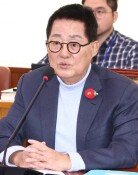[Editorials] Worker Disdain for Small Businesses
[Editorials] Worker Disdain for Small Businesses
Posted April. 03, 2009 09:47,
While youth unemployment is a serious social issue in Korea, many small and medium-size enterprises are struggling to find workers for manufacturing jobs. Many companies spend lots of time and money to recruit new employees, but incur large losses as workers are quitting soon. According to a February survey of 341 companies with 1,000 employees or less conducted by job market information agency Incruit, 37 percent of 3,209 rookie staff they hired quit in less than a year. Instead of working at factories of smaller companies, many young people would rather work at bars or hotels or remain jobless to get unemployment benefits. As a result, it is virtually impossible for small businesses to cultivate skilled workers.
It is extremely difficult for young people to find white-collar jobs at conglomerates or state-run companies now. Nevertheless, many of them are wasting an important period in their lives trying land jobs at such workplaces, which is counterproductive. From the perspective of the national economy, if small businesses cannot find workers and operate their plants to full capacity, the result will be a decline in production and tax revenue. If a growing number of people seek unemployment benefits while jobs are available in certain fields, taxpayers will face a growing burden while the efficiency of distribution of national resources will fall.
Building of a social safety net for the jobless has become more important due to the global economic crisis. This measure, however, should in no way prompt people to stay unemployed to collect benefits. The country should pursue a policy designed to give more benefits to people who work hard at production sites. Certain countries in Western Europe have implemented a policy in which unemployment benefits go only to jobless people who proactively seek work or take vocational training. Korea should also implement such a policy.
The populist educational policy of previous governments, which excessively increased the permissible student quotas at universities, has led to an overeducated workforce. This in turn prompted educated young people to avoid jobs with small businesses. The ratio of high school graduates who enter universities in Korea increased from 51 percent in 1995 to 84 percent last year. The ratio in advanced countries is about 50 percent. As college graduates are produced in large numbers, young people develop unrealistic career expectations. The government must readjust student quotas at universities by comprehensively considering demand and supply in the labor market. The number of special vocational high schools must also be raised, as well as create an environment where high school graduates can land quality jobs.
Top managers at companies also should take care of employees rather than blindly blaming others and the environment to raise staff loyalty. Certain small businesses have fired skilled technical workers under the pretext of automation and relocation of plants abroad. For Korea to ease the worker shortage at small businesses, jobseekers need to change their mindset while the government, small businesses and conglomerates make concerted efforts.







